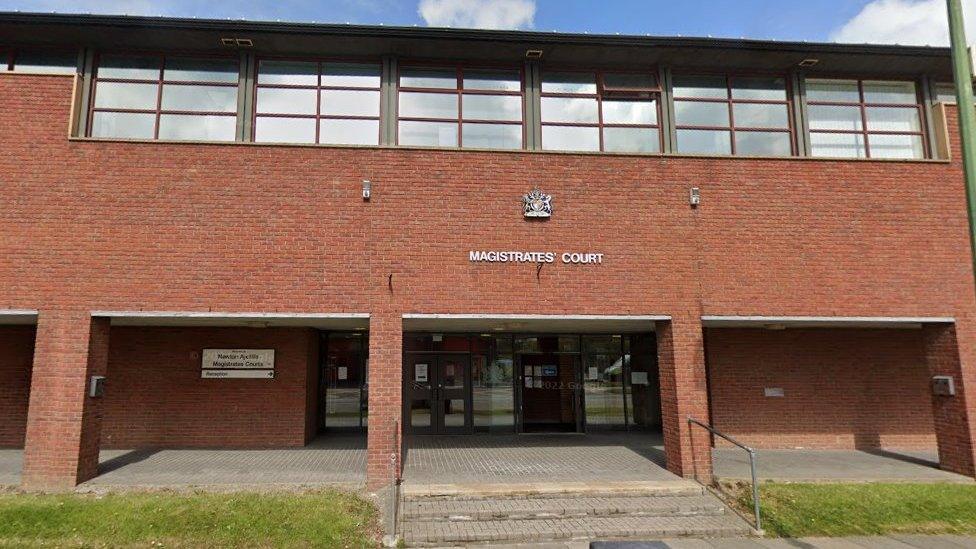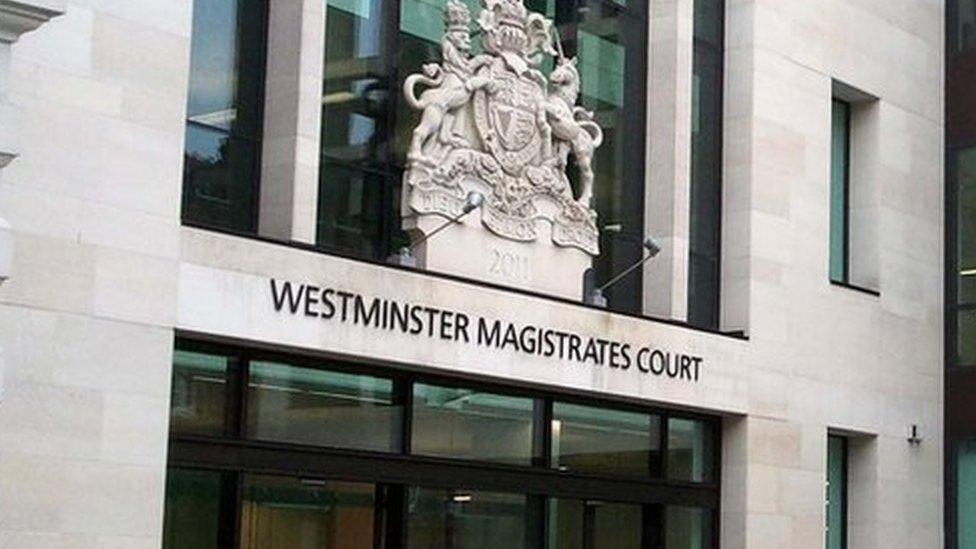Darlington boy, 14, sentenced for terrorism offences
- Published

The teenager - the youngest person in the UK to be convicted of terrorism offences - was sentenced at Newton Aycliffe Youth Court
A boy who talked about carrying out a right-wing terrorism attack on an orphanage has been sentenced.
The boy, from Darlington, was 13 when he said he wanted to carry out a school shooting and owned manuals detailing how to make explosives and weapons, Newton Aycliffe Youth Court heard.
He is one of the youngest convicted terrorists in the UK.
The boy was ordered to complete a "high-intensity" referral order for 12 months after admitting three charges.
Columbine shooting
The boy, who is now aged 14 and cannot legally be identified, admitted having three documents found on his bedroom computer which detailed how to make various "viable" explosives, prosecutors said.
He also downloaded instructions on how to make a "DIY self-loading pistol", the court heard.
Prosecutor Jane Stansfield said police were alerted after an Instagram user, later identified to be the boy, sent messages saying he was "planning on blowing up an orphanage" and was seeking firearms like those used in the Columbine shooting which the teenager had a keen interest in.
She said the boy made repeated searches about the 1999 US school shooting and used images of the two Columbine killers as his profile image on a communications app.
In messages he said he "liked Columbine and wanted to start a series of events just like it", the court heard.
Ms Stansfield said he regularly used "racist, anti-Semitic and anti-Islamic language" and made contact with other far-right extremists online.
He also bought a Confederate flag, linked in the US to white supremacist groups, and posed for pictures in front of it while wearing camouflaged clothing and a face mask.
Ms Stansfield said the boy's computer use started with an interest in the military that morphed into right-wing extremism, including downloading a picture of Adolf Hitler when he was 11.
Police seized items including his computer, mobile phone, a portable hard-drive and military uniform when they raided his home on 1 July 2021.
'Naivety and vulnerability'
Stephen Andrews, in mitigation, said the boy accepted he was "so stupid" and insisted he would never and "could never" have carried out any of the acts he discussed.
Mr Andrews said the boy had become "extremely isolated" from his school friends and "latched on" to groups and ideologies that "almost gave him something of a persona and identity".
He said the boy showed signs of "extreme naivety and vulnerability" coupled with "elements of sophistication" and "ideas and access to information one wouldn't normally associate with somebody of his age", but he had the "capacity and willingness to reform".
Senior District Judge Paul Goldspring said the boy either had a "fantastical mind" not "linked to reality" or he would be "one of the most dangerous young persons around".
The judge said although the custody threshold had been crossed, he did not consider the boy to be dangerous.
He said almost every minority group was targeted by the boy's "vitriol" and his actions online had been "very alarming" but there was no evidence he actually planned to carry out an attack by, for example, buying a gun or scoping out a school.
He said although the boy had not officially been diagnosed with autism, he had suffered a number of "traumatic events" and had neuro-development difficulties which meant he could "easily be influenced" and he "did not function at the same intellectual level as most 13 or 14-year-olds".
The judge said the boy had already made "rehabilitative" progress which would be undone by a custody term.
As well as the referral order, the boy was also ordered to pay £167 in prosecution costs and a court surcharge.
Speaking after the sentencing, Det Supt Matt Davison, from Counter Terrorism Policing North East, urged anyone with concerns about someone potentially becoming radicalised, external to report those worries early.
"We know it can seem like a big step to share your worries but in many cases the right support will come through education and health professionals and there isn't a need for further police involvement," he said.

Follow BBC North East & Cumbria on Twitter, external, Facebook, external and Instagram, external. Send your story ideas to northeastandcumbria@bbc.co.uk, external.
Related topics
- Published19 January 2022
